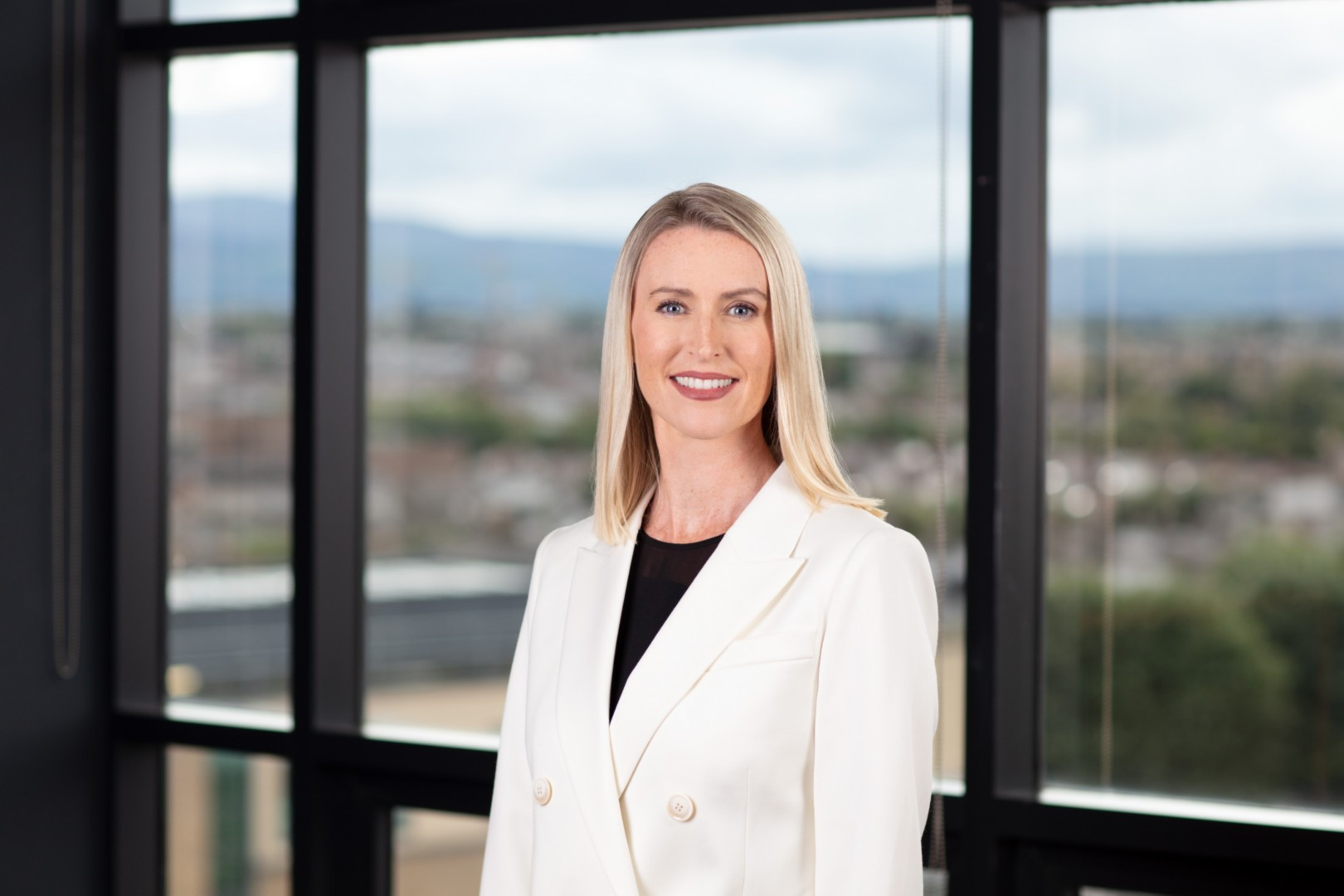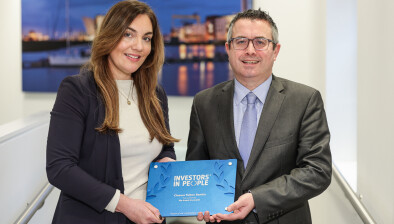Lawyer of the Month: Deirdre Malone

Pictured: Deirdre Malone, partner and head of employment law at EY Law Ireland.
As mergers, acquisitions and strategic representation arrangements have altered the Irish legal scene, the Big Four accountants haven’t been slow to see the opportunity to transform themselves from audit firms to multidisciplinary professional services operations.
Having made their first forays into the market in the 1990s, EY, Deloitte, KPMG and PwC are all capturing an ever-larger share of the global market for legal services, recent research by Saïd Business School at the University of Oxford confirms.
Deirdre Malone heads EY Law Ireland’s employment team as part of a leading global and multidisciplinary professional services firm offering law as an integral part of its client offering.
She was recently noted in Chambers and Partners (2023, Europe Edition) as someone who has a “methodical approach” and “gets to a thorough understanding of the issue quickly”. Chambers’ rankings further praise Ms Malone for her “straightforward and excellent advice that we can act on” while also being highlighted by the Legal 500 for her work in employment law.
Ms Malone took her degree at University College Cork, then worked briefly in Dublin for a boutique employment firm before returning to her native city where she practised employment law as a partner at a full-service corporate law firm for several years when she was approached by EY, which was setting up EY Law in Ireland.
“It was a fascinating proposition and a unique opportunity in the context of what was happening in the profession to work for a globally known brand such as EY,” she says.
“EY Law was already established in more than 90 other countries and I was delighted to see what it was achieving. I thought it made absolute sense for them to open EY Law in Ireland and offer legal services to its clients, both here and on the international stage.
“Much of the appeal was in joining what was not just an international law firm but having the opportunity to partner with other EY businesses and bring an end-to-end solution to clients, providing results specifically tailored to what they are looking for.”
The move also came, she recalls, during the Covid-19 crisis: “As an EY Law lawyer I had access to an incredible network of people who practise in this particular area and were able to give advice on employees moving to other countries, with specialised knowledge about keeping them in employment and not only providing legal solutions but also tax-relevant answers.”
Of course, Covid itself was among many factors that has resulted in recent surge of changes to the employment law sector, ushering out the traditional nine-to-five working day as employees now seek a better work-life balance and more flexible working arrangements.
Among these is the EU’s Work-Life Balance Directive which requires the introduction of range of new family-friendly incentives, meaning that employees will have more opportunity to seek flexible ways of working from their employers.
Employers may also need to reimagine and adapt their expectations of a normal working week to retain key talent, something Ms Malone says she is “passionate” about.
She believes talent management and retention in a diverse and inclusive workplace is vital. “Living in a world where location is no longer significant, clients compete in a tough market for the best people to grow their businesses and brands so it’s imperative that our clients manage their people in a thoughtful and considerate way, while complying with local employment laws.”
To succeed in a challenging and competitive business world, she adds that employers need to be flexible. “One of the first things a candidate will ask is ‘what are the benefits of the job?’.
“And they no longer mean just the financial package but aspects such as healthcare allowance and other ‘wellness’ supports which can range from meditation, mindfulness, and yoga classes. To attract and retain talent, clients are having to be more creative and nuanced than ever before.
“And hopefully we’ll soon see a legislative right to request remote work and right to work flexibly code of practice — because these are among the first questions when employers are trying to attract retain and incentivise talent.
Ms Malone is also enthused by another key question for many employers: the gender pay gap and the practical issues that arise from the Gender Pay Gap Information Act, such as the widening of employee definition, the sensitivity of collecting data and anomalies created by maternity and other types of leave.
“We’re able to provide the legal advice and explain and interpret the legislation in Ireland while we also have employment tax and employment consultancy services who can review all the payroll data and help the client understand why and specifically where they have a gender pay gap,” she explains.
“Our data analytics team can then prepare a dashboard for clients to enable them to identify where the gender pay gap exists within the organisation. That represents a change in the range of solutions clients are increasingly demanding when it come to their professional services team.”
Outside of EY Law, Ms Malone is a member of the Law Society of Ireland’s Women in Leadership mentoring programme and sits on the Society’s employment and equality committee.
Mentoring female solicitors for the Law Society gives her a welcome opportunity to help others with a level of advice she herself would have appreciated at an earlier stage in her career.
“It gives female lawyers the opportunity to offer their time as mentors to younger female lawyers”. Separately, in her role as a member of the employment and equality committee, she says that “it’s a fantastic group of employment law solicitors that I’ve been privileged to have been involved with for 11 years now”.
The group, she says, regularly makes submissions to the government about new legislation coming through. “It’s about giving something back to the profession and making sure that Ireland is recognised globally as an excellent country in which to operate.”
With an enhanced work-life balance at the heart of much of her own area of expertise, how does she rate her own? She smiles. “I spend a lot of time running a taxi service for my gorgeous children bringing them to and from sports activities and meeting friends…
“And while it’s sometimes easy to talk about achieving a good work-life balance and doing what you can to ensure this, ultimately we all have busy jobs and busy lives,” she admits.
“But I wouldn’t change all the extra things that I do for the world. I love to see the next generation of lawyers coming through, striving for excellence and I find my role incredibly fulfilling.”
No two days, she adds, are the same: “The legislation is the framework within which you work but you also have to be creative and empathetic, to understand your clients and prepare bespoke advice that’s tailored to them and their particular circumstances.
“It’s like solving a puzzle – you have to think ahead strategically to the next move and that gives me a lot of satisfaction.”










